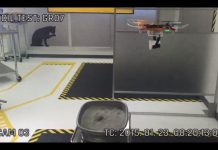The project called CoronaSurveys was created to “Measure the Iceberg” and was based on the idea that the iceberg has a visible tip – in this case, the number of confirmed cases – but below that tip, submerged and out of sight, is the rest of the block of ice, one of uncertain dimensions, and which can sink any vessel that does not know its real size. In order to get to a number that is closer to the real number of people affected by Covid-19, the team led by Antonio Fernández Anta published the first surveys on Twitter in Spanish in mid-March. Over the weeks since then, the project has expanded to almost global dimensions. Currently the surveys cover 150 countries and 60 languages.
The survey is open to everyone to participate. It initially asked respondents only three questions: from which geographical area can you provide data; how many people do you know in the area; and how many people in that area do you know who have Covid-19 symptoms or who may have had contact with the disease? Now, it also asks about recent cases, so that outbreaks can be spotted. One of the objectives when designing the data search method was to scrupulously respect data protection laws. Consequently, the survey is anonymous and doesn’t collect any information that could lead to the identification of either the participants or the patients counted.
From the data collected daily in the surveys, the researchers have been able to obtain estimates which, as they have verified, are very close to the most accurate data on the incidence of the disease available, such as those obtained from the serological study launched by the Spanish Government, but at a much lower cost: “Bearing in mind that in the seroprevalence study more than 100,000 tests have been done, its cost must have been at least one million euros, while our study, without counting the hours and resources contributed by volunteers, has cost less than 2,500 euros”, explains Antonio Fernández Anta, researcher at IMDEA Networks, an institute supported by the Community of Madrid.
The current objective of CoronaSurveys project is to detect early any increase in Covid-19 cases in order to avoid serious outbreaks or a return to confinement. Anyone who wishes to participate may do so by answering the survey. To make participation easier, the project has an application for mobile phones that facilitates the collaboration of citizens. This application is available for both Android and iOS.
As well as recording real time data, CoronaSurveys, which is principally a research project, is also making advances in the scientific field. In this regard, a paper using data from Spain, Brazil, Ecuador and Ukraine has been accepted for presentation at the Humanitarian Mapping meeting to be held in San Diego (USA) on August 24.
The initiative of Antonio Fernández Anta’s team has had an impact beyond Spain’s borders. In its last edition, the American magazine The Scientist referred to the CoronaSurveys project as one of the two outstanding projects worldwide focused on the collection of data on Covid-19 and led by scientists from outside the world of medical research.
CoronaSurveys also represents the first time that the Network Scale-up Method estimation technique that uses indirect reports has been used to collect data online continuously and at a global scale. Antonio Fernández Anta’s team had to develop new data analysis techniques because they did not exist for surveys of this kind. Both this innovative form of data collection and the new analysis techniques can now be applied in fields as diverse as political surveys and consumer studies.
The team led by Antonio Fernández Anta is currently seeking sponsorship to continue the project.
###
About Antonio Fernández Anta
Research Professor at IMDEA Networks since September 2010. Antonio Fernández Anta holds a PhD in Computer Science from the University of Louisiana at Lafayette and completed a postdoctoral stay at the Computer Science Laboratory of the Massachusetts Institute of Technology (MIT). His research is focused on networks and communication, parallel processing, algorithms and discrete mathematics.
TDnews














